When Fall 2022 & Spring 2023
Where Online
The FRN Leadership Initiative prepares emerging leaders to transform their own campuses by getting them to recognize opportunities to lead up, down, and sideways. This program also builds community across the FRN for continuing leaders who want to facilitate change and maximize collaboration within and between institutions. Ultimately, the goal of this program is to contribute to the transformation of the higher education ecosystem.
The entire virtual program will be held over two semesters, Fall 2022 and Spring 2023 (six sessions in the Fall and six sessions in the Spring).
Programs
All sessions are on Fridays from 11:00 to 12:30 Eastern time.
Please note that any dates that include guests are subject to change. Other dates and times are fixed.
Fall 2022
In our program kick-off we will get to know one another, our current positions, and our institutions / units.
We will also discuss:
- what are the actions and characteristics of the best or worst leader you’ve worked with? what were they like? what were their core values or principles?
- what are the essential values and actions of a successful leader if you were to build the perfect leader?
- overcoming resistance
- your role’s history and legacy
- support and self-care
In this self leadership session, we will discuss:
- time and project management
- setting boundaries for yourself and others you may lead, and
- the Myers-Briggs® Type Instrument (MBTI) process. (Taking the MBTI will be totally voluntary.)
In this interpersonal leadership session, we will discuss:
- organizational charts
- personnel performance expectations
- personnel reviews, and
- strategies for inherited personnel
In this interpersonal leadership session, we will discuss:
- the mission, vision, and purpose of your institution or unit
- learning the unspoken, lived mission of your unit/organization
- getting to know others in your institution or unit
- speaking up
- intersectionality, and
- influencers and informal power dynamics
In this interpersonal leadership session, we will discuss:
- building relationships with internal and external stakeholders
- trust, transparency, and psychological safety,
- coaching and mentoring, and
- shared governance
Featuring Enobong (Anna) Branch, Ph.D., Senior Vice President for Equity (she/her), Rutgers University
In this interpersonal leadership session, we will discuss:
- creating an inclusive and equitable campus
- your understanding and commitment to equity and inclusion
- overcoming biases
- equity and inclusion in hiring and performance evaluations, and
- retention for equity and diversion
Spring 2023
In this interpersonal leadership session, we will have a guest leader discuss:
- managing conflict / difficult conversations, and
- There will also be an overview of the Style Matters Kryabill Conflict Style Inventory. (Taking Style Matters will be totally voluntary.)
Led by Associate Provost Dr. Rosalie Richards, Stetson University
In this team leadership session, we will discuss:
- team building and talent acquisition
- identifying your team’s core competencies and gaps
- communicating your expectations to your team
- managing your team’s expectations
- facilitating better meetings
- team charters, and
- forming task forces, working groups, and committees
Led by Dr. Maria Thompson, Former President and CEO of Coppin State University
In this systems leadership session, we will discuss:
- gathering data and determining who to trust
- accessing data
- retrieving the reports/data you need, and
- data-supported decision making
In this systems leadership session, we will discuss:
- communication strategies including transparency,
- critical questions for crisis communication planning, and
- policy and practices reviews.
Featuring Dr. Maria Thompson, Former President and CEO of Coppin State University
In this systems leadership session, we will interview a guest leader to discuss:
- their definition of leadership,
- their leadership journey, and
- leading change, in particular.
For your FRN Leadership Initiative capstone, you will choose one or more of the following deliverables and verbalize them in our final session together.
- Reflect On Stretch Goals For Your Institution/Unit That Can Be Accomplished in 3-5 years
- Identify and Create Your Legacy for Your Current Position
- Create Your 3-6 Month Roadmap in a Leadership Area of Your Choice
Guest Session Leaders
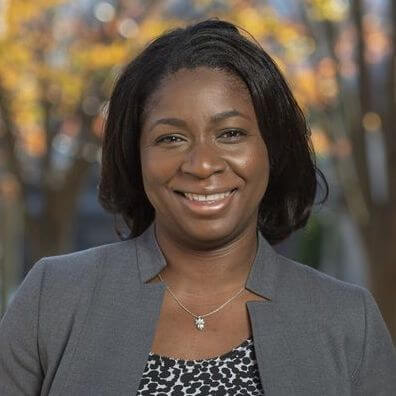
Enobong (Anna) Branch, Ph.D.
Senior Vice President for Equity (she/her), Rutgers University
Anna (Enobong) Branch, Ph.D. is a scholar and strategist who helps move organizations and leaders from well-meaning to well-doing. She serves as the senior vice president for equity at Rutgers University and provides strategic leadership to ensure that the institutional commitment to equity is reflected in the research, educational, and community engagement efforts that occur throughout the university and the focus extends to faculty, staff, and students.
Prior to joining Rutgers University, Dr. Branch served as associate chancellor for equity and inclusion at the University of Massachusetts–Amherst. Her significant accomplishments in that role included leading the integration of diversity throughout the campus strategic plan, executing the university’s campus climate survey, creating diversity infrastructure through climate advisors in executive areas and diversity officers in schools and colleges, and leading the National Science Foundation funded ADVANCE program pursuing innovative organizational change strategies to spur institutional transformation and support racial and gender equity in the faculty ranks.
A professor of sociology, Dr. Branch’s commitment to advancing equity extends to academic research on labor and work that explores the historical roots and contemporary underpinnings of racial and gender inequality. She is the coauthor of Black in America: The Paradox of the Color Line (2020), the editor of Pathways, Potholes, and the Persistence of Women in Science: Reconsidering the Pipeline (2016), and the author of Opportunity Denied: Limiting Black Women to Devalued Work (2011). A sought-after national expert on diversity in the academy, Branch serves on several advisory boards that aim to advance inclusive excellence within professional societies, the National Academies of Science, Engineering, and Medicine Action Collaborative, the Association of American Universities Racial Equity Advisory Board and more. Dr. Branch received her Ph.D. in sociology from the University at Albany, SUNY and her B.S. in biology from Howard University.
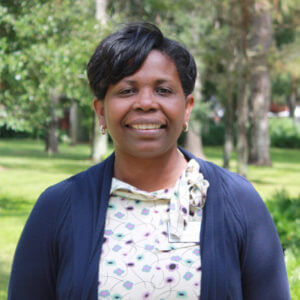
Rosalie Richards, Ph.D.
Associate Provost, Stetson University
As Associate Provost for Faculty Development, she is responsible for leading all aspects of teacher-scholar faculty development and support, with a focus on enhancing excellence and innovation in learning and facilitating an inclusive learning environment of intellectual vibrancy. This ranges from faculty development to international learning and undergraduate research to online learning.
Prior to joining Stetson in 2014, she served as the first Kaolin-Endowed Chair in Science and Georgia Eminent Scholar at Georgia College & State University, the state’s public liberal arts university. Richards was the founding director of the award-winning Science Education Center and was responsible for collaboratively raising over $10 million in private, state, and federal grant support to advance STEM education in the state of Georgia. At Georgia College, she served as professor of chemistry in the Department of Chemistry, Physics & Astronomy. Between 1996–2001, Richards served as the first NASA-National Science Foundation Model Institutions for Excellence Scholar-Teacher at Spelman College in Atlanta, GA. While a doctoral student, she taught chemistry as an adjunct professor at Santa Monica College in Santa Monica, CA, and was a member of the Drew University of Medicine’s MCAT Boot Camp staff in Los Angeles, CA.
Dr. Rosalie A. Richards holds a B.S. in chemistry with physics from the University of the Virgin Islands, earned a Ph.D. in chemistry from the University of Southern California, and received a certificate in project management from the Keller Graduate School of Management.
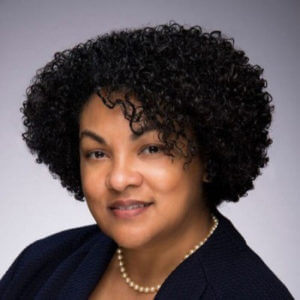
Maria Thompson, Ph.D.
President and CEO, Retired, Coppin State University
Maria is a career educator whose work experience spans a variety of institutional categories, including research universities, comprehensive universities, land-grant universities, urban located, rural located, HBCUs, and PWIs. She was president and CEO of Coppin State University (CSU), provost and vice president for academic affairs at the State University of New York (SUNY), and vice president for research and sponsored programs at Tennessee State University.
Maria earned her Bachelor of Science degree from Tennessee State University, a Master of Science degree from the Ohio State University, and a doctorate from the University of Tennessee, Knoxville.
FRN Leadership Initiative Facilitator
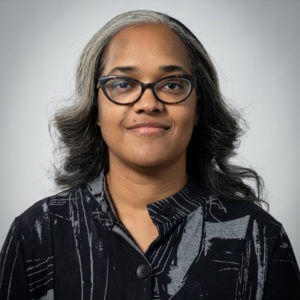
De Angela L. Duff
Associate Vice Provost, NYU, and Industry Professor, NYU Tandon School of Engineering
In her role as Associate Vice Provost, De Angela works closely with Vice Provosts Clay Shirky and Charlton McIlwain. She aides and reviews work on online courses & degrees and other technology-enhanced education, as well as serves a leadership role in setting and executing the strategic vision for the Faculty Resource Network (FRN). She also assists with other leadership, faculty development, or teaching & learning initiatives, managed by the Provost’s Office. She holds an MFA in Studio Art (Photography) from MiCA, a BFA in Graphic Design from Georgia State University, and a BS in Textiles from Georgia Tech.
Testimonials

I really got so much out of the FRN Leadership Initiative. It helped me to understand not only my own leadership strengths and weaknesses, but how to recognize the individual strengths of each member of my department. I particularly enjoyed the Meyers-Briggs analysis and follow-up discussion with De Angela. I will miss the ability to see and speak to the other academics in the seminar and discuss our challenges and successes.
Jennifer Brown, Ph.D.
Professor of Writing, Literature, and Language Chair, Humanities & Social Sciences , Marymount Manhattan College
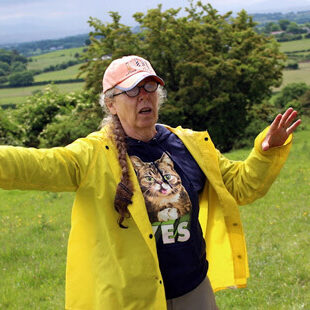
The course really forced me to think about the qualities of good leadership and to re-think the ways in which I interact with my colleagues at NYU and in the field of archaeology. The guest speakers were universally excellent.
Pam Crabtree, Ph.D.
Professor and Director of Undergraduate Studies Anthropology Department, Faculty of Arts and Science, New York University

The excellent FRN Leadership Initiative showed me that leadership is a state of mind. It is the ability to listen, to model, to recognize the talent in other people and to help them thrive. Above all, it is community. The cornucopia of wisdom I gleaned from my FRN colleagues has been transformational for me both at home and at work.
Jenny McPhee
Academic Director and Clinical Assistant Professor Center for Applied Liberal Arts School of Professional Studies, New York University
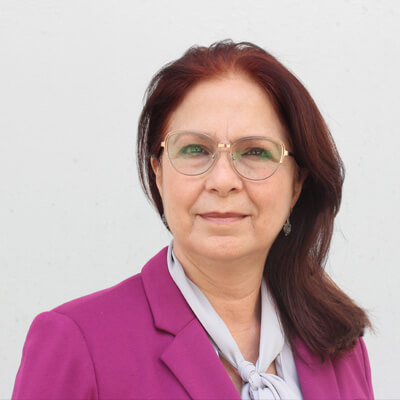
This initiative has broadened my understanding of leadership in my personal, family, and work relationships, causing a reexamination of my reactions. I was able to evaluate my decision-making process honestly and carefully in a relaxed virtual environment with peers. Each meeting reaffirmed a new focus towards identifying strengths and areas to improve. I have learned a great deal and shared the readings with others. I will miss the meetings; the class has proven to be of great personal enrichment.
Miriam Ramírez-Muñoz, Ph.D.
Professor Department of Communication, Universidad de Puerto Rico en Humacao
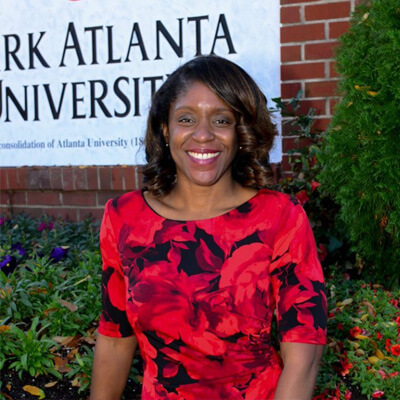
The FRN Leadership Initiative provided an invaluable opportunity for me to reflect on my own experiences with leadership, while also considering what kind of leader I have been and aspire to be. It helped shape my vision for a future in leadership in academia and offered numerous resources, including a supportive community of peers, to aid in the pursuit of that goal.
Charmayne E. Patterson, Ph.D.
Director, Center for Innovative Teaching, Learning, and Engagement Associate Professor of History Department of African American Studies, Africana Women’s Studies, and History, Clark Atlanta University
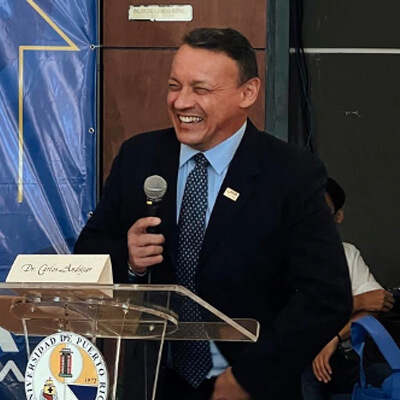
The FRN Leadership Initiative helped me rethink my leadership paradigms in my roles as professor, industrial and organizational psychologist, and campus chancellor. I enjoyed very much the book club, group sessions, diagnostics tools, and coaching sessions. I highly recommend the FRN Leadership Initiative to anyone that wants to develop and improve their leadership skills.
Carlos A. Andújar Rojas, Ph.D.
Full Professor Chancellor, University of Puerto Rico at Arecibo
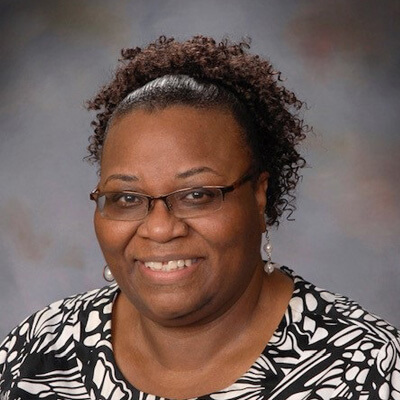
Since I teach in a doctoral leadership program in higher education, more than impacting the way I think about my leadership role, my participation in the FRN Leadership Initiative confirmed for me that I am on the right track in the way I currently provide facilitation and various pedagogies/strategies to support my students’ learning and growth. It was enlightening to be on the other side of the learning experience to view the way leadership development is provided. The diagnostic tools (self-assessments) and large and small group discussions were most impactful for me since these tools pushed us to self-reflect. Self-reflection leads to greater self-awareness, self-identity, learning, and growth. I’m proud to have been a member of the first cohort of the Initiative and would recommend it to faculty at any level.
Sequetta F. Sweet, Ed.D.
Assistant Professor of Organizational Leadership School of Education, Stockton University

